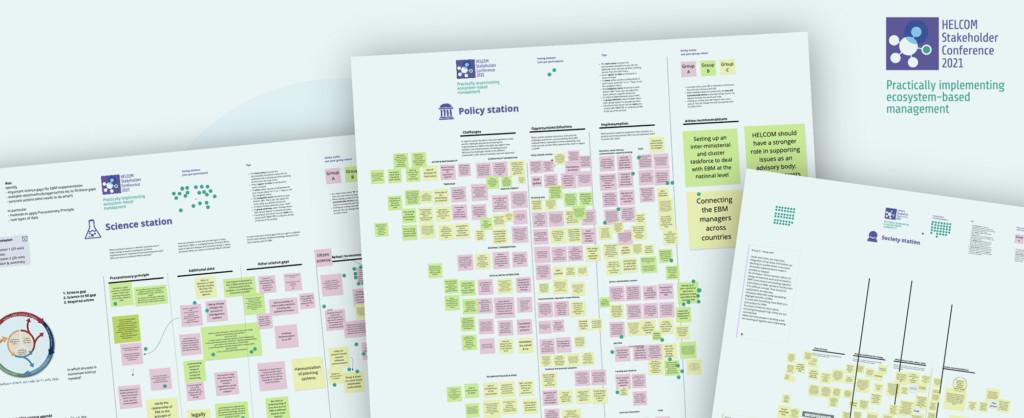
In an effort to advance the implementation of ecosystem-based management (EBM) in the Baltic Sea region, HELCOM held its Stakeholder Conference 2021 (HSC2021) “Practically Implementing Ecosystem-Based Management” on 11 March 2021 as an online workshop.
“It is acceptable for us to benefit from the Baltic Sea as we too are part of the ecosystem, but this also comes with the responsibility to maintain our sea in a healthy state,” said Rüdiger Strempel, the Executive Secretary of HELCOM during his opening remarks.
Ecosystem-based management addresses the management of human activities in a holistic manner and in relation with the marine environment, correlating our doings with the pressures they may cause on habitats and species. The aim is to maintain our sea in a healthy state so that it can continue to provide valuable ecosystem-services.
Attracting about 100 participants from all over the Baltic Sea region and organized in collaboration with Coalition Clean Baltic (CCB) and the Swedish Agency for Marine and Water Management (SwAM), the HSC2021 touched on the policy, science and society-related aspects of EBM. The stakeholders particularly focussed on the challenges related to EBM implementation and possible solutions to overcoming these.
“Thinking and working in silos” was frequently mentioned throughout the workshop as a main barrier to sound EBM implementation in the Baltic Sea region, with participants calling for better cross-sectoral integration, cooperation and coherence, including across the various regional to local government levels.
According to the participants, good EBM implementation further requires better communication and knowledge on the matter at all levels, to increase a shared understanding of the issues at hand. One recommendation was to improve the dialogue between science and those tasked with implementing EBM in practice. Increased stakeholder involvement across the board could also foster ownership of the EBM process and drive its implementation.
Also, starting with small, easy-to-manage pilot projects could help gather valuable insights on EBM processes in order to replicate them in other regions or to scale them up once more knowledge on implementation processes has been gained.
“We know enough to act” was another view widely shared by the HSC2021 participants, highlighting that the main bottlenecks impeding a wider EBM roll-out weren’t so much due to the lack of policies and science but to their concrete application.
In addition to being one of the HELCOM Voluntary Commitments to the UN Ocean Conference 2021, the workshop also offered the possibility to gather considerations on Ecosystem-Based Management (EBM) from stakeholders as possible input for the Baltic Sea Action Plan (BSAP) update process, the HELCOM Science Agenda and HELCOM’s future work on implementation on the ecosystem approach, including the update of the Roadmap on HELCOM activities on the ecosystem approach.
The results were presented to the members of the Helsinki Commission at their most recent meeting (HELCOM 42-2021), which was held from 17 to 18 March 2021. The outcomes of the HSC2021 will now be forwarded to the relevant HELCOM bodies dealing with the update of the BSAP, the HELCOM Science Agenda and the HELCOM Roadmap on EA, among other processes.
- Read the outcome of the HSC2021 on helcom.fi/hsc2021
